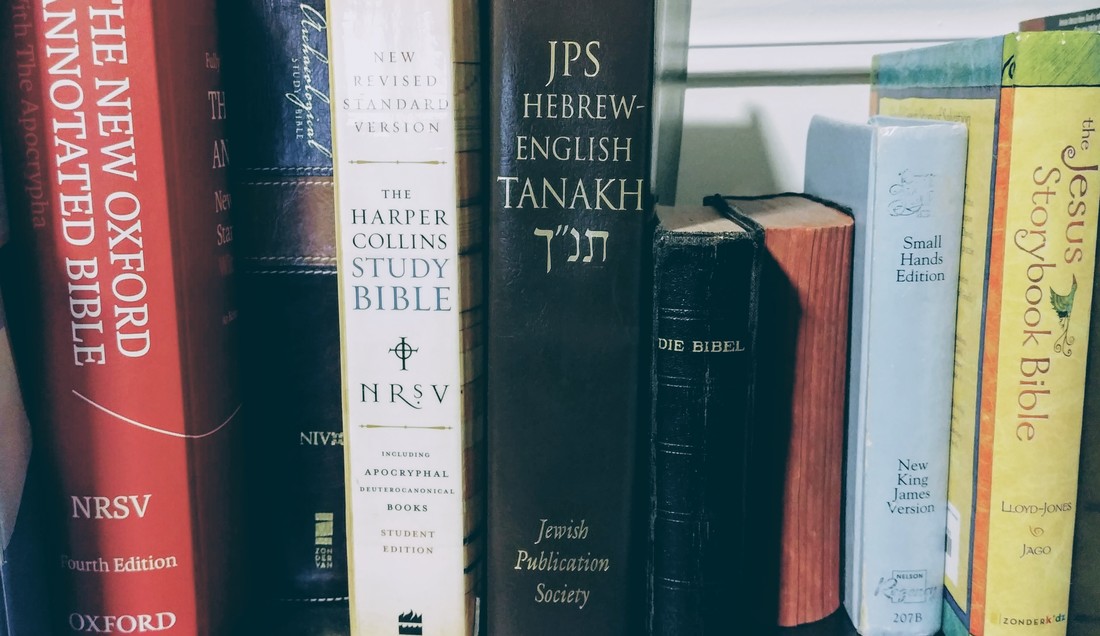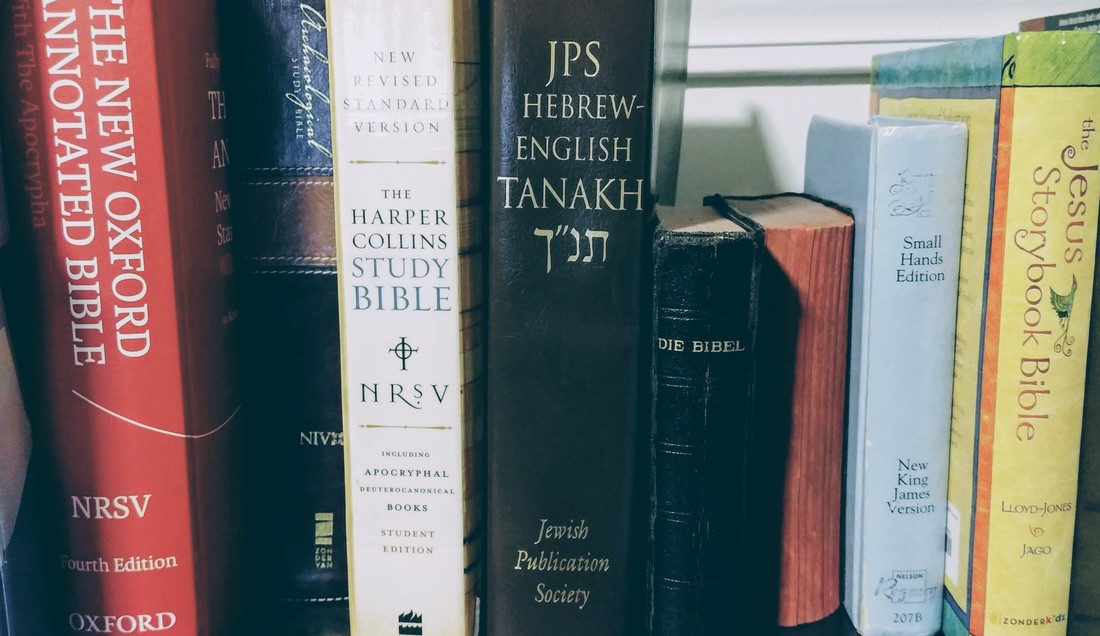|
-Rev Melissa Fain- If it's visual, we get that time changes things. Have you ever walked into one of those homes that haven't been renovated since it was built in the early 1970's? The bold but pointless design choices, and mustard yellow shag carpet are reminders why we let many of those elements die in their created decade. Another example: Have you ever seen those eerie pictures of Chernobyl 30 years after the accident? Since everyone just got up and left, it's a time capsule to 1986. Nature is slowly reclaiming the city, but their is no doubt about the era. We also understand visual differences in culture. When we see those helmeted cupolas, we know we are look at something influenced by Russia. In the same way, if we see columns with fluting and embellished cornices, we are looking at a Greek design. Language is the same way. What we say, and how we say it is greatly influenced by time and culture. I speak differently than many of the people around me, because I was born in Kansas City. I also speak differently than my son and daughter because there are decades of time between when I learned to speak and when they learned to speak. Biblical Scholars use voice to understand the BibleOne of the tools Biblical Scholars use to understand the Bible is voice. Since we can't carbon date a text that no longer exists, they look for certain words or names that help. I'm going to pull from one of my old Introduction to the Bible studies: "Introduction to the Bible Using The Wonderful Wizard of Oz." It does go through many of the things I'm doing here, but you use the Wizard of Oz as a companion piece. It's in the Bible Study tab if you want to download it. Based on machines, and archaeologists, linguists, and people way smarter than me, it is understood in educational circles that the first five books of the Hebrew Bible have four types of writers. This is a big deal when you consider it in context of the writing. First, let me share what these four voices are and then let me explain how it plays out on a biblical level. The four types of writers are commonly known by four letters. These letters are, JEPD. J: These writers name God as Yehweh. (Ya-way) The 'J' is used because the first translators who wrote the Hebrew into a western alphabetic symbols were primarily the Germans. The Germans spell Yehweh, Jahwe. In J material, God is close and relational. Example: God walks in the garden with creation in Genesis 3:8. E: For the same reason, these writers are called 'E' because their chosen name for God is Elohim. Elohim is kinda the generic word for God or gods in general. In E material, God is distant and communicates through dreams or secondary sources like messengers or prophets. P: These are the priestly writers. They are very concerned with boundaries and rules. (Genesis 1 is full of them.) They are also concerned with the right of the priestly family of Aaron. D: These are the Deuteronistic writers. These writers consider God to be so distant it is only a voice. God, according to these writers, communicates through forms like burning bushes. One could gather from the name, most of the writings from these writers can be found in the book of Deuteronomy. -Introduction to the Bible using The Wonderful Wizard of Oz, M. Fain, pg 17 If you are still around I've kept everything understandable enough. JEPD can blow all of that out of the water. Also, I can hear some of your voices in my head. "Don't mess with my Moses." If you don't know what I'm talking about, you are probably in the camp I was in when I learned about JEPD. There is a long tradition of saying the first four books of the Bible were written by Moses. No one ever tried to teach Moses authorship, probably because they knew what I'm going to share below. If you are not in the Moses Camp thank your lucky stars. This meditation is going to be way easier for you digest. If you are in the Moses camp, this next paragraph is for you to help you release that death grip just a little for what I'm going to write. Moses did not write the first four books of the Bible, and that's a good thing. Remember week one where I pointed to God? God is in the event, and the writing of the event was a shock wave. If Moses wrote the first four books of the Bible, then the Bible does not begin at the beginning of time. The Bible begins in the Exodus, with Moses telling about the beginning of time. The power of the initial event is no longer important. (I'm actually going to push back into this a little, but that's for next week.) When we put the entire story on the shoulders of one man, we have the Mormon Problem. Joseph Smith, the founder of the Church of Latter Day Saints, had a Moses event. He was given a new testament, he translated that testament, and no one else touched it. That moment is a moment Mormons are ruthlessly mocked. You want a group of people coming with the same story, because it gives authenticity to the story. More than that, saying Moses wrote all of the Torah (minus his death) suggests there was no story before Moses, or the story wasn't Moses, just transcribed by Moses. The oral story was either part of the community, or there was nothing. There is no in between when you give complete authorship to Moses. In other words, Moses is part of the story, but Moses isn't the entire story. Okay, that out of the way let's dig into these four voices. J and P- Dueling BanjosThere are no doubts that the Gospels were written by multiple people. Generally: they are separated. They are given their own book title. Because of the separation, we get the purpose of the writers. The Gospel writer of Matthew wants to connect the Hebrew Bible to the New Testament. The Gospel writer of Luke makes the purpose blatantly clear at the beginning by stating it to Theophilus. He wants to collect the stories to get to the truth.: 1 Many people have already applied themselves to the task of compiling an account of the events that have been fulfilled among us. 2 They used what the original eyewitnesses and servants of the word handed down to us. 3 Now, after having investigated everything carefully from the beginning, I have also decided to write a carefully ordered account for you, most honorable Theophilus. 4 I want you to have confidence in the soundness of the instruction you have received. Luke 1:1-4 CEB The same thing is happening in the Torah (or the first five books of the Hebrew Bible), but we don't have the luxury of book headings. More than that, we have complete stories in the New Testament, but fragments in the Hebrew Bible. That's what makes this so difficult to digest. Two fragmented stories can look like one complete story. Without knowing what is going on in the language, or who is saying what, most would never consider the story changed narrators. The Yehweh texts are old. They might be the oldest words written in our canonized Bible. Basically, in the beginning we wanted to know God, and how our world worked. We end up with God in relationship, and us moving away from that relationship. Genesis 2:4b-25 is one voice; the Yehweh voice. The second voice is at the beginning. That's right, friends. Gen 1:1-2:4a is epic. It stands as a completely different story. This is the most clear cut place where we can see two stories side by side, and each one has its own purpose, and tells its own version of the events. In P, the waters are separated above and below. Above it was placed above a dome, and on the earth. They would later be pushed away so the earth could exist. In J, the earth already existed, and the waters came up out of the ground. In P, humanity is the very last thing that was created before God proclaimed it was "Very good," and rested. In J, the trees and animals hadn't been created before God breathed life into Adam- which literally means, from the earth, from the Hebrew word, "Adamah." Before I continue, take two bibles (or pull up BibleGateway.com on your computer, and your bible in front of you) and read each account like a standalone reading. They clearly don't belong together, and trying to put them together is quiet impossible. Why it's okay that each voice focuses on a "different" GodPlease see the quotation marks. They are vital.
Last week I was thanked for showing kindness. My son saw the card and quipped, "They know you're mean too, right?" I am not magically a different person because my mom hat looks different than my substitute hat. What I write here looks radically different than my open letter to the school board. Those are all images of me. Depending on who is talking about me, will change how I'm viewed. There are people who think I'm scatter brained and left field. There are others who think I'm very grounded and centered. Depending on who is talking about me, they are right. I am all those things. This is true of God as well. We each have a view of God, and none of those views are complete pictures at all. I had a colleague described it this way. It's like looking at a Van Gogh painting by holding a piece of white paper in front of it, restricting our view entirely. Then, we punch a pencil through the paper, allowing us a tiny view of the picture. What we can see is truth, but such a small piece of truth. We seek the truth of others to gain a fuller picture. Where we fail is when we take people's interpretation of their view as Gospel. What they saw might be truth, but how they interpreted it, might be false. The truth might be God gave us dominion, but that's in light of caretakers, not overlords. The truth might be that God created us equal and different at the same time. When we focus only on the difference to suggest power only can be held in the hands of certain kinds of differences... well, then are we talking about interpretation issues? I think so, but that's something I've explained in depth on multiple other posts. To bring home the point again: If we are aware of the voices in the texts, we have a better understanding of what those voices are trying to say, and why they are saying it. God is Truth, and the interpretation of that Truth isn't always Truth. -Rev Melissa Fain- I think we've come to the point in this series where I need to explain myself some. The past four weeks are a beast to take in. You might be wondering what is my endgame? What do I have to gain from doing this? Wasn't everything peaches and cream before I had to drop these bombs exploding everything into pieces?
No. No it wasn't. The Bible is a tool. It's a tool to understand where God was, is and will be. It's a tool that shares the Love of God in the world. Any tool can and has been weaponized. The Bible is no exception. Proof texting, or pulling individual scriptures without context is the result of believing the Bible can be taken piecemeal. Yes, I know where you are if this information is new. I was there. I took your beautiful image and tore it up. A group of people did the same thing to me. There are people out there who use this information just to destroy. They like to blow up for the sake of blowing up. Not all these people are meaning to hurt others, but their joy in exploding the Bible has left many a soul bruised and deeply wounded. I refuse to leave you with remnants. Like a doctor re-breaks an old break to reset and heal correctly, I will not leave you until we've pieced this back together. This is the difference between getting this information from an armchair theologian and a minister. I'm called to point to God. Where is God? God is in the pieces. God is always present, even in the darkness and confusion. God is in this moment. We have five weeks until Ash Wednesday. That's when we begin our journey to the cross. It is a necessary journey that takes us through death to new life. Any new life requires the death of something. Stick with me. There is a resurrection in this story. -Rev Melissa Fain- This is the third post in a series.Here are the first two if this is your first visit: Introduction Finding God I took German to an intermediate level in college. My final project in that class was to translate a German text literally from German to English, then to a readable translation. I chose Genesis 1. I was comfortable with the English version, and could practically say it without reading. Let's look at verse 1: In the beginning, God created the heavens and earth.I literally had a mini-crisis of faith when I first began translating, because Martin Luther wrote the first verse like this: Am Anfang schuf Gott Himmel und Erde.Don't worry, I plan to translate. Literally it translates: "In the beginning, created God, the sky and earth." I was interested in the German word for "heaven." I wanted to add something new to my vocabulary. Then I stared at horror, and the pieces came together. Martin Luther did not translate from the Latin Vulgate, which was the standard translation back then. He used Greek and Hebrew texts. He was pulling from the closest source he could find, and the word he used was sky. Up until that specific point my creation theology saw "heavens" as only the Divine place for God. That could be anywhere. I did not see it literally in the sky. The obviousness of it all was what really scared me. Of course heavens meant sky. How many authors in the 18th-early 19th century wrote about looking up towards the heavens? It scared me because if I could miss something so obvious, what else was I missing? When I eventually took Hebrew four years later, one of the first verses I looked up without being asked was Genesis 1, and of course the same word came up- roughly translated to "skies." בְּרֵאשִׁית, בָּרָא אֱלֹהִים, אֵת הַשָּׁמַיִם, וְאֵת הָאָרֶץ.At this point, I knew what I was going to find. Honestly, if I had found something else it would have only confused me. To many in the early Bible times, they saw their gods as literally above and below. Their power was tied to natural acts, and they couldn't see those kinds of actions removed from a guy literally throwing down storms. The earth shook? They believed the gods below literally shook the foundations to smite or punish. A terrible storm tore through a town? To them, that was a god coming down and ripping up the town. Those who read the Hebrew Bible, believed God was in the sky. Besides scripture literally saying God is in the skies, we have three huge clues..
By the time I was born the language of God had changed. People didn't readily say God was above, and we were below. Instead, congregants focused more on God being everywhere. That's why it shocked me to know "heavens" in Genesis 1:1 was literally the skies. Heaven, as I had understood it my whole life, wasn't above me. Deeper waters coming: This is one of the reasons why we can't have a literal bible. Some of the things the bible literally says is putting us in very uncomfortable places. When Galileo said we were not the center of the universe, it led to a Roman Inquisition! He spent the rest of his life under house arrest just for refusing to back down from that belief. Now his case was obvious. The Roman Catholic Church flat out stated the problem. The Bible shows the Earth to be the center of the universe, and he was saying something different. When it comes to the moon landing, we are dealing with something more subtle. People could choose not to believe Galileo, or remain ignorant of what he said hundreds of years before. You can't ignore the television. Stepping on the moon, and broadcasting it to the world forced congregants to reconsider the Bible. Notice I wrote "congregants." Ministers and theologians had already been looking at the Bible from a non-literal view. Pretty much the Holocaust forced people to think about scripture differently, and some amazing work had already been written from post-WWII to the moon landing. Now Churches were forced to consider it too. The moon landing could not be put under house arrest. Just to bring it all back, and let you know where God is, read the last part of this prayer by St. Patrick: Christ with me, Christ before me, Christ behind me, Christ in me, Christ beneath me, Christ above me, Christ on my right, Christ on my left, Christ when I lie down, Christ when I sit down, Christ when I arise, Christ in the heart of every man who thinks of me, Christ in the mouth of everyone who speaks of me, Christ in every eye that sees me, Christ in every ear that hears me. -St. Patrick- Born over a thousand years before Galileo, St. Patrick shows us where God has always been when we can't take a literal Genesis 1:1. God is everywhere. God is in everything. As science and language change, God does not.
-Rev Melissa Fain- This is the forth post in a series.Here are the first three if this is your first visit: Week 1: Introduction Week 2: Finding God Week 3: Language Changes The Story of the Dead Sea Scrolls: aka- How to literally fall into greatness.He carefully looks at the statue. If he can remove it safely it will release the correct door, revealing the Dead Sea Scrolls. If not, the whole room begins to fall apart, and utter doom for all who are with him. He looks around and only sees dirt. Grabbing a bag, he fills it up, and guesses the weight of the statue by adding more dirt to his bag. Feeling it is "good enough," he does a quick switch. Nothing happens. Then a door opens and magic light spills out. As he enters a giant boulder also releases almost crushing him. Yeah, I stole from pieces of the opening to Indiana Jones and the Raiders of the Lost Ark. While Jones captured our imagination when it came to archaeology, the reality is far from fantastical. In the late 1940's, a shepherd was in the middle of doing his daily routine when the ground gave way, and he fell into a hole. Finding his bearings, he looked around to see clay jars. Inside were texts from the Hebrew Bible. For a year, he kept some of them hanging in front of his house. Then, he tried to sell them. He eventually got $28 for half of a manuscript. That's when archaeologists got involved. Asking around, they eventually found the original cave, and then found several more. It turned out to be the biggest Biblical archaeological find ever. It was literally the tomb of dead parchment. When the scroll would get damaged, instead of just throwing it away, the Ancient Near East people put them in jars and entombed the parchment. These remnants help Bible scholars, even today, understand the original text. They are the oldest known versions of books of the bible known to humanity. The Story of the Masoretic text: aka- The Hebrew translation of the Hebrew Bible.If you click over to last week's meditation, check out the Hebrew. You will notice all these little dots and comas. Those are vowels. Most modern language includes them in the words, but Ancient Hebrew was different on many levels. By itself, the written words of Hebrew contained none. All you got were the consonants to let you know how to read the word. Then, around 500 CE they were added to the language. Because the written language had already been built, the vowels were inserted as comas, lines, and periods. It wasn't that they didn't know the word before, only now there was no doubt. They were added by a group called the Masorites. The Masorites wanted to preserve the text so there would be no confusion regarding what the Hebrew Bible was saying. Thus, the Masoretic Text was born. They made it their mission to spread this new translation far and wide. It is said the Masorites pulled from an ancient text known as the Urtext, but no such text has ever been found. The Story of the Septuagint: aka- The Greek translation of the Hebrew Bible.Two hundred or so years before the birth of Jesus the King of Egypt commissioned 70 Jewish Priests to accurately translate the Hebrew Bible into Greek. He chose 6 from each tribe of Israel. Sure, if you do the multiplication problem that equals 72, but this translation has been nicknamed LXX which stands for 70. No one important seems to care that the math doesn't add up. It's also inconsequential to the story. What is consequential is this translation was placed in the Alexandrian Library. Not in existence today, the Alexandrian Library was the biggest collection of writings from around the world. Depending on who's list you use, it was also considered one of the Wonders of the Ancient World. This specific translation was placed in the hub of commerce. It was dispersed in ways other translations couldn't. When you are reading references in the New Testament to the Hebrew Bible, you are reading them pull from the LXX Greek Hebrew Bible. Added note: When comparing the Masoritic text and the Septuagint to the Dead Sea scrolls, their are places where both don't match, but for every one mismatch of the Septuagint to the Dead Sea Scrolls, there are four mismatches to the Masoritic. The Story of what this all means: aka- This is more than Monty Hall asking you to pick a door. What I just shared was class number one in OT101 taught by Rev. Dr. David Peterson. He had a way of teaching alarming information, and quickly disarming it's danger. He is the base of my theological understanding, and I take knowledge and method from his classes.
As I learned about the different translations, I first thought the Dead Sea Scrolls were it. We should be exclusively using them to translate. Then I jumped on the Masoritic band wagon. It's actually Hebrew, and it's complete. Finally, I went Septuagint because it was actually the oldest complete Hebrew Bible. Only, there's those textual differences between all three. The Dead Sea is the oldest, but we just don't have it all. This also doesn't mean everything in those caves are 100% accurate. If a scribe made a mistake copying, that text still contains scripture, and must be properly laid to rest. As we study the texts in the cave, that must be kept in mind. Also, remnants doesn't mean missing specific pages. In some cases, a remnant can literally be a piece of a parchment. Modern translation teams use them all. Yes, I wrote "teams." Rarely does one person sit down and do a translation. Teams allow for discussion on how something should be translated. If your translation is worth its salt, you will see tiny letters tied to tiny words at the bottom of your bible. Those are times the team didn't agree completely. Rather than just going with the majority, they also included what others thought as well. This is why I asked you to take this journey in order, and why I had to spend a week pointing to the location of God. God exists in the event itself, and the transcriptions of the events are like shock waves. The ripples of a God event are sacred, like touching the hem of Christ. Do not think I see them as mere words. You shouldn't either. We are simply putting the most wonder and awe back on the event itself, and are humbled that we were given a piece of that event in the text we have today. -Rev Melissa Fain- There are two sharp edges that exist with this topic, and if I don't dull or make aware of them, it will drive you away. The first is language. The average person cannot understand a book meant for a Masters level student. It's not that they couldn't understand it eventually, It's just that once you teach someone the language to understand the book, most would be disinterested in the content. The late Fred Craddock had a way of language I plan to adopt. Just explain it in normal language. I watched him preach, and explain really complex ideas in very down to earth ways. I knew the meaning behind his words, but most in the room just got a solid sermon. Just know this is happening, and feel free to ask me deeper questions if you wish to know the higher church language. The second is depth. I love to compare theology to a pool. Some of us can still remember what it's like to be a very young child in the baby pool. New Christians swim in shallow faith because their faith isn't strong enough to swim through the deep stuff. Ministers are stuck knowing this every Sunday morning. They realize there are both people who can handle deep end faith and those who are still in the shallow end. Many solve the problem by making everything shallow. I take a different approach. You will know, before you start reading, if we are about to go deep. I will pair that with my faith. I do believe that Jesus is the Christ. I do believe in God. With everything I'm going to share, I came out with a stronger and richer faith. Keep that in mind as you follow along. Let's begin! There were and are God momentsIf I went up to you and asked, "Where is Atlanta?" you could pull up a map and point to the city of Atlanta. This would be true. At the same time, you could put me in a car and literally drive me to Atlanta, where I could physically stand on the land that is Atlanta. That too would be true. Then there's more. You could take me to sights. You can show me Atlantans, tell me their story, show me the history. All of this would also be true. When we point to the place on a map, we are doing so not to say that that dot is Atlanta. In that way it is not true. A map does not contain Atlanta. Rather, the map points to where one can find Atlanta. Atlanta is a physical place full of real people with real stories. You cannot understand the city divorced of her people and her history. You can know of the city without physically being in the city. To truly know is to immerse oneself in more than a dot on a map. What does Atlanta have to do with the Bible? Okay, let's talk God. If I were to ask you, "Where's God?" you could pull out a Bible and point to it. That would be true. At the same time, you could take me to a church or a class about faith. You could fly me to the Holy Land. That too would be true. You might have a God moment, where the presence of the Divine was real. All that is truth. When we point to the Bible, we are not saying "This is God." Instead, we are saying the Bible is a collection of moments where God's presence was so terrific it had no other option but to be kept in the community's history. If you are taking all this seriously, I need you to take a moment and sit with that statement. It is a lead up to deep waters, and the above statement is the boat. When you feel you understand, keep reading. I believe the job of a teaching minister is to point congregants to God. This is different than a seminary professor. A seminary professor gives the minister the tools to do his or her job. If that's difficult to grasp, take it this way. A medical doctor's job is to save and enhance lives. A medical professor's job is to give the tools for the future medical doctor to do his or her job. See what I mean? Your minister should always, in some way, be pointing to God. Their seminary experience gave them tools to point. Where is God? God is in the actual event. The Bible is a shock wave from that God moment. The event itself holds the reality. I have to say this because there is line of thought where people say the Bible is 100% without errors. I understand why people want to believe in an error free Bible. It makes the Bible easy. One could simply open it up and find some level of instruction for basically any situation. There are multiple problems with this line of thought: The issue with believing the Bible is error free:
I hope this didn't scare you off yet. We've just started, and we've got a long way to go. Sit with this, and I hope to see you again next week. -Rev Melissa Fain- Once every couple of years I delve into this subject. I believe we need to bridge the gaps through the growing chasms in Christian faith. One of those bridges is Church faith with Seminary knowledge.
The church gets faith. They understand and know the power of God in the world and in their own lives. Great books by faith leaders have explored the well of Living Water. BUT- church often ignores or refuses understanding. Most congregants don't even know they are being refused this knowledge, and many would choose to refuse if they knew. Meanwhile, the seminary gets knowledge. Scholars have boldly explored the theological and biblical possibilities, even the ones that scare us. BUT- seminaries are often Godless. The bible is viewed through a secular lens. It is simply an archaeological or sociological book. Here's the problem. Faith is a blind journey, and knowledge is a road map. The map exists for a reason. All of us have the potential to see a minuscule piece of the Divine. Seminary is supposed to be the collections of those minuscule pieces, brought together to create a fuller picture. In many ways, it still is, but without the journey the map is null and void. I want to bring those pieces back together. This is where, if you have any idea what I'm saying, you should be getting a bit anxious. To do this, it means I will take you places that are very spiritually uncomfortable. This is information that have broken those before us. First year seminarians learn what I wish to share, and they leave the faith entirely. What should one expect when knowledge is introduced with God cleanly cut out? You are left with an empty void that sucks you into the abyss. I promise. if you stick around for the next two or three months, I will connect the faith with the knowledge. There are no abysses in my words. God remains, and will remain. Let me leave you with this warning: You cannot undo what you may read in my words over the coming weeks. If you are not ready, just skip the meditations for a bit. I want to get real, but this reality is a one way trip. This isn't a trick. You have to be ready for what I'm going to share. That being said, as always, I'm excited. Biblical interpretation and theology are the two things I can pull out soap boxes for, or geek out over. Stick around, and you won't be disappointed. Hang back, and I won't be disappointed. No disappointment anywhere. |
Categories
All
Archives
October 2023
|









 RSS Feed
RSS Feed